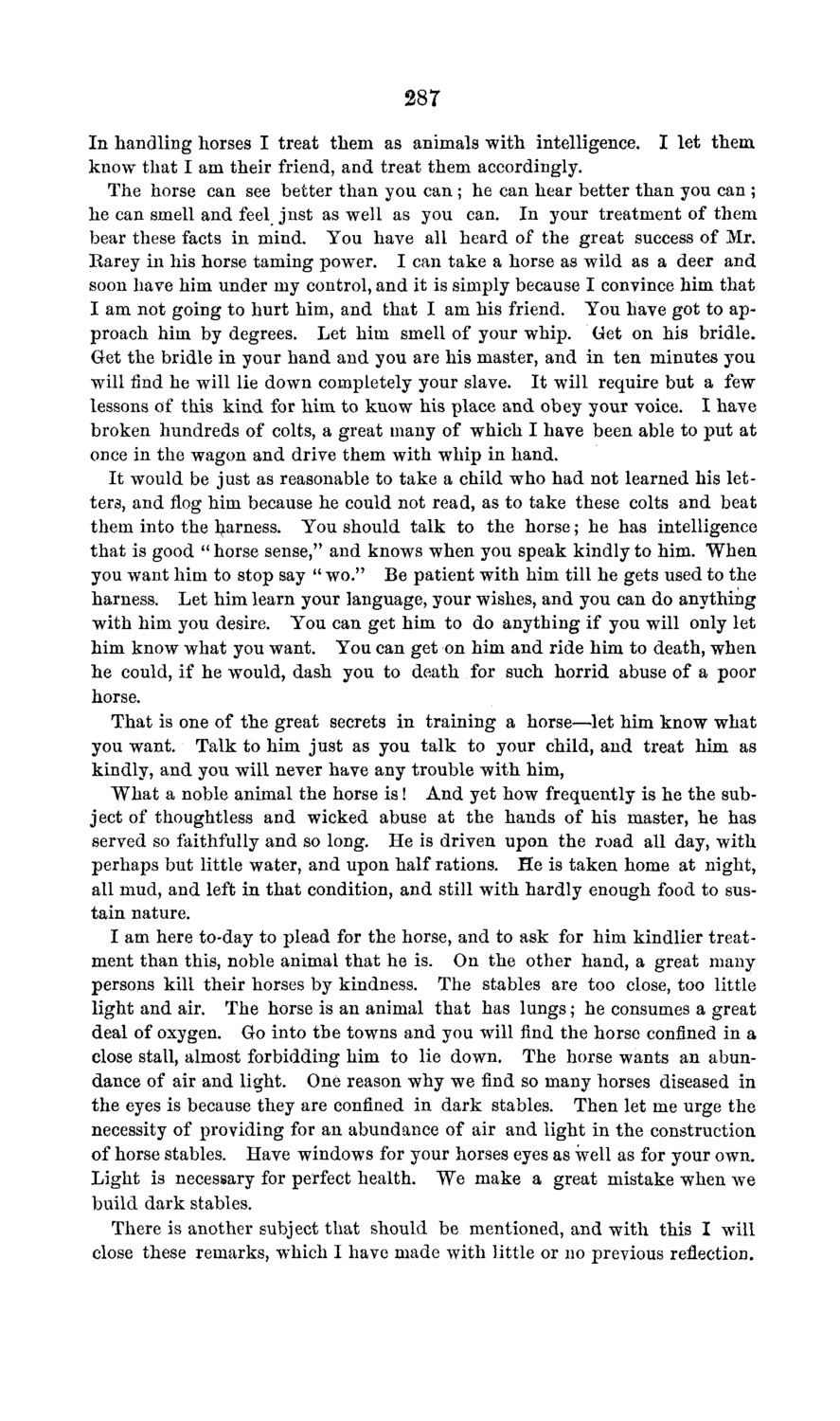| |
| |
Caption: Board of Trustees Minutes - 1869
This is a reduced-resolution page image for fast online browsing.

EXTRACTED TEXT FROM PAGE:
287 In handling horses I treat them as animals with intelligence. I let them know that I am their friend, and treat them accordingly. The horse can see better than you can ; he can hear better than you can ; he can smell and feel jnst as well as you can. In your treatment of them bear these facts in mind. You have all heard of the great success of Mr. Rarey in his horse taming power. I can take a horse as wild as a deer and soon have him under my control, and it is simply because I convince him that I am not going to hurt him, and that I am his friend. You have got to approach him by degrees. Let him smell of your whip. Get on his bridle. Get the bridle in your hand and you are his master, and in ten minutes you will find he will lie down completely your slave. It will require but a few lessons of this kind for him to know his place and obey your voice. I have broken hundreds of colts, a great many of which I have been able to put at once in the wagon and drive them with whip in hand. It would be just as reasonable to take a child who had not learned his letters, and flog him because he could not read, as to take these colts and beat them into the harness. You should talk to the horse; he has intelligence that is good " horse sense," and knows when you speak kindly to him. When you want him to stop say " wo." Be patient with him till he gets used to the harness. Let him learn your language, your wishes, and you can do anything with him you desire. You can get him to do anything if you will only let him know what you want. You can get on him and ride him to death, when he could, if he would, dash you to death for such horrid abuse of a poor horse. That is one of the great secrets in training a horse—let him know what you want. Talk to him just as you talk to your child, and treat him as kindly, and you will never have any trouble with him, What a noble animal the horse is! And yet how frequently is he the subject of thoughtless and wicked abuse at the hands of his master, he has served so faithfully and so long. He is driven upon the road all day, with perhaps but little water, and upon half rations. He is taken home at night, all mud, and left in that condition, and still with hardly enough food to sustain nature. I am here to-day to plead for the horse, and to ask for him kindlier treatment than this, noble animal that he is. On the other hand, a great many persons kill their horses by kindness. The stables are too close, too little light and air. The horse is an animal that has lungs; he consumes a great deal of oxygen. Go into the towns and you will find the horse confined in a close stall, almost forbidding him to lie down. The horse wants an abundance of air and light. One reason why we find so many horses diseased in the eyes is because they are confined in dark stables. Then let me urge the necessity of providing for an abundance of air and light in the construction of horse stables. Have windows for your horses eyes as well as for your own. Light is necessary for perfect health. We make a great mistake when we build dark stables. There is another subject that should be mentioned, and with this I will close these remarks, which I have made with little or no previous reflection.
| |